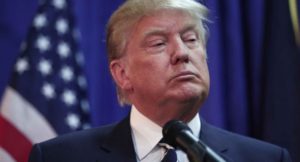
Renfro Home

User-Supported News Commentary Hosted by Craig Crawford

 USA Today: “Following his win in Indiana a week ago, today’s contest in West Virginia is part of a pocket of states voting this month, such as Oregon, where Bernie Sanders is expected to do well — even after Clinton carried a number of Eastern states in April that put her on a path to clinch the nomination. … West Virginia is representative of Clinton’s strategic challenge in the general election. … She spent much of her West Virginia tour last week apologizing for earlier comments suggesting she wanted to put the coal industry out of business.”
USA Today: “Following his win in Indiana a week ago, today’s contest in West Virginia is part of a pocket of states voting this month, such as Oregon, where Bernie Sanders is expected to do well — even after Clinton carried a number of Eastern states in April that put her on a path to clinch the nomination. … West Virginia is representative of Clinton’s strategic challenge in the general election. … She spent much of her West Virginia tour last week apologizing for earlier comments suggesting she wanted to put the coal industry out of business.”
Clinton beat Obama in WV 67% to 26% in 2008.
The GOP is defending 24 Senate seats to the Democrats’ 10 and seven of those seats are in states President Obama won twice — Pennsylvania, Ohio, Florida, Wisconsin, Iowa, Illinois and New Hampshire. (The Senate is currently composed of 54 Republicans, 44 Democrats, and 2 independents, both of whom caucus with the Democrats.)
What’s the Trump effect? More or less likely the Senate turns blue?
 The 142nd Kentucky Derby gets underway today at Churchill Downs. The race is slated to start at 6:34 p.m. Eastern. NBC’s race coverage will begin at 4 p.m. ET.
The 142nd Kentucky Derby gets underway today at Churchill Downs. The race is slated to start at 6:34 p.m. Eastern. NBC’s race coverage will begin at 4 p.m. ET.
Read our own Jamie’s briefing.
 FiveThirtyEight: “Donald Trump’s romp through the Northeast corridor last week shattered all expectations. It also positions Indiana’s contest today as a desperate last stand for Ted Cruz and the #NeverTrump movement.”
FiveThirtyEight: “Donald Trump’s romp through the Northeast corridor last week shattered all expectations. It also positions Indiana’s contest today as a desperate last stand for Ted Cruz and the #NeverTrump movement.”